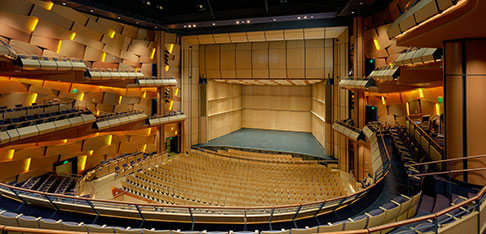
Full Calendar Broadway Classical Concerts Dance Jazz
National Geographic Speakers Theater/Comedy Summer Series Performing Live Programs
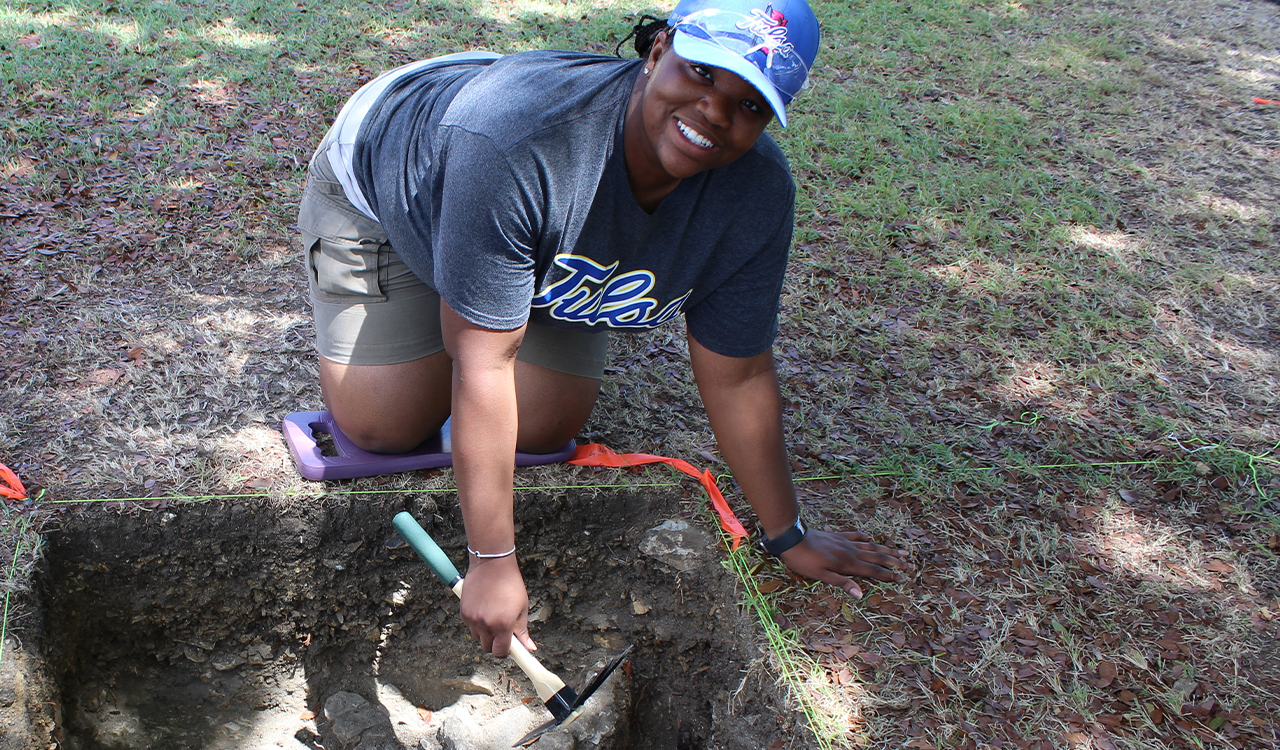
We had a chance to sit down with Alicia Odewale, an African Diaspora Archaeologist, to learn more about how her life’s journey led her to discover information about her family’s past that even she didn’t know.
Odewale was born and raised in Tulsa, Oklahoma, where she lived with her mom, dad and little sister. She went to school on the northside of town at Booker T. Washington High, a school created in 1913 to separately educate Black children during the segregation era in Oklahoma.
In high school, Odewale said her friends nicknamed her “Latin” because “I was the only Black student taking Latin for my required “foreign language” credit. But as I got deeper into studying Latin, Greek and Greco-Roman history it always bugged me why I never got to read about people who look like me in these classical stories. So anytime I got a chance, if I did any independent research, it would be about Black people in Rome or Greece, or in Mauritania. After graduating from Westminster College in 2009 with a B.A. in Classics and Psychology, I returned to my hometown to study at The University of Tulsa (T.U.).”
Still interested in past cultures, objects, history and memory formation, Odewale enrolled in the Museum Science and Management Master’s program at T.U.
“I ended up being the first person of color to graduate with that degree at T.U. in 2012, and it was during this program that I fell in love with African Diaspora Archaeology, and I was finally able to dive deep into the lived experiences of Black people in the past and explore memory through people’s relationships with objects. I really value what archaeology can do to bring previously unheard-of people, places and stories to life that are too often missing from our history books and archives,” said Odewale.
Still curious to know more, Odewale enrolled in the Ph.D. program in Anthropology and once again made history when she graduated in 2016 as the first person in T.U.’s history to graduate with a doctorate in Anthropology.
“[The] Whitney Battle Baptiste book Black Feminist Archaeology was the first archaeology book I read cover to cover and it completely opened my mind to the possibilities for conducting research outside of the traditional bounds of anthropology. In short, it wasn’t until I discovered the writings of Black women doing groundbreaking research in archaeology that I felt I had a chance to do it myself,” said Odewale.
Odewale’s research interests include: African Diaspora Archaeology, Danish West Indies/Virgin Islands Archaeology and History, Caribbean Archaeology, Urban Enslavement and Freedom, Community-based Collaborative Research, Comparative/Collections-based Research, DAACS, Archaeology of the Tulsa Race Massacre/Greenwood District, Ceramic Analysis, Transferware Studies, Resistance, Heritage Studies, Reconciliation and Restorative Justice Archaeology and Slow Archaeology.
“My approach to archaeology is centered on my commitment to transforming the field and making it more inclusive for others like me and the next generation coming in now. I am passionate about promoting diversity in higher education at both the faculty and student levels and increasing diversity in the field of archaeology itself. Data from the Society of American Archaeology indicates that after decades of archaeological research in America, less than 1% of archaeologists in the US identify as Black or African American. Through my research, course offerings, and connections to specific projects, I want to encourage more historically underrepresented students, and especially Black scholars, to get involved with archaeological projects both locally and abroad,” said Odewale.
As a Facility member at T.U. Odewale’s passion for anthropology is transposed into her classroom and beyond, and she is expanding her field of exploration well past the borders of Oklahoma.
“I plan to continue my research projects in the Virgin Islands and in the larger Caribbean region as well as in Oklahoma, allowing more marginalized students to take an active role in studying and contributing to interpretations of the past,” said Odewale.
Which in turn led to Odewale co-creating Estate Little Princess Archaeological Field School in St. Croix, with Ayana Flewellen, Justin Dunnavant, Alexandra Jones and William White.
“This program is the first field school of its kind to be directed by a team of African American archaeologists under the umbrella of the Society of Black Archaeologists. The field school used archaeology to explore the experiences of the enslaved community who lived and labored at the Estate Little Princess, a local historic sugar estate. The field school had three overall objectives: to expose local Crucian students to career opportunities in archaeology and develop skills transferrable to various STEM fields; to allow the students to leverage this archaeological training in excavation, survey, and artifact processing as a tool to become active stakeholders and possibly pursue advanced training and education in [the] field; and, to increase the level of cultural stewardship across the island by encouraging youth to explore the past material lives of individuals within the African Diaspora. There is no fee to participate. Removing the cost increases student and community access to archaeological training. It also democratizes the ownership of archaeological knowledge and rights to participate, reaching beyond the traditional circles of patrons whose money or connections to archaeologists have allowed them to join field school expeditions,” said Odewale.
In her National Geographic Live speaker series “Greenwood: A Century of Resilience” Alicia Odewale shares stories of resilience in the 100 years since the attack on Black Wall Street in Tulsa’s vibrant Greenwood District.
“I only recently found out that I am a descendant of a survivor of the 1921 Tulsa Race Massacre. I heard stories about Greenwood from my father, but no one ever told me how our family might be connected to this history. All I knew as a child was that my mom was born in Tuskegee, Alabama (with all of its loaded history) and my dad came from Cleveland, Tennessee (a city situated next to a Sundown town known as Ducktown – the name made famous by the slogan “any Blacks caught here better duck”). And as far as I knew, we were the first generation in our family to make the journey from the Deep South to Oklahoma territory. I found out this couldn’t be further from the truth,” said Odewale.
While most folks think a story involving the Tulsa Race Massacre would be all about violence, death and destruction, Odewale wants the story to focus on restorative justice and how the community came together in the aftermath and is still fighting for justice today.
“As the title indicates it is a story of community resilience. Every time we talk about Greenwood, we want to highlight that this is a resilient community that has been here for generations and will continue to exist long into the future. Greenwood never left. The main point of the show is to continue to disrupt the myth of Greenwood being destroyed in 1921, and that being the end of its story. Being a Tulsa native and a descendant of a survivor this story is personal for me but also as an archaeologist, and unfortunately the only Black archaeologist working in the state of Oklahoma right now--- this story isn’t about me but how one of the most prosperous Black communities in the country came to exist in the first place, the decades of labor that’s gone into chronicling this history, and all the evidence we have left to show how Greenwood has changed through time. Our focus is not just about what happened in 1921 but looks forward 100 years to connect our past and present together,” said Odewale.
Doing research in her hometown has been a rewarding experience both personally and professionally.
“Professionally, I have received an unprecedented level of support from individuals and organizations in Tulsa, who not only awarded me my first six figure grant for my Mapping Historical Trauma in Tulsa research project that I co-created alongside my colleague and fellow Tulsan, Parker Van Valkenburgh but, also provided access to nearly every collection in existence that might relate to this work and trusted me to be the one to carry out the first archaeological investigation in Greenwood’s long history. Personally, I have loved having my family and friends be able to not only see more of my work but labor alongside me as all my family have come out to see me at Standpipe Hill, toured the site, helped me track down archival documents and phone numbers of individuals I wanted to talk to, and most of all care for my children while I worked on this project. None of my work in Tulsa could have happened without having these lifelong connections, established trust, monetary support, and advocacy on my behalf as people I grew up with have become my collaborators in this research that in the midst of this centennial year, has gained more attention than any other project I have ever done,” said Odewale.
Currently, Odewale is focused on her new teaching course called Archaeology of Black Heritage in Oklahoma. The class focuses on blending archaeological and historical evidence, as well as Black geographies, digital resource tools and genealogy research to examine the diversity of experiences that existed for both enslaved and free people of African descent in the territory now known as Oklahoma and how they made a life for themselves in an increasingly hostile landscape. Using archives, archaeology, genealogy, oral history, digital storytelling and geospatial tools, students will learn the power of counter mapping and vernacular history collection to challenge mainstream, single story narratives of history and reimagine cultural heritage landscapes.
“Other than teaching, I am mainly focused on writing, getting more publications out and continuing to ask questions of the artifacts around me. The typical life of an academic archaeologist. I want everything I do in the world of archaeology to serve a purpose, bringing us closer to breaking down the social, economic, racial and ideological barriers that we have put up against community raised scholars that are already knowledge producers whether we choose to recognize it or not. If we want to maintain relevance in this increasingly connected world, we as archaeologists must be able to do work alongside people generating knowledge outside of our field and academia or the real work to solve world problems will be done without us,” said Odewale.
Greenwood: A Century of Resilience is sponsored by

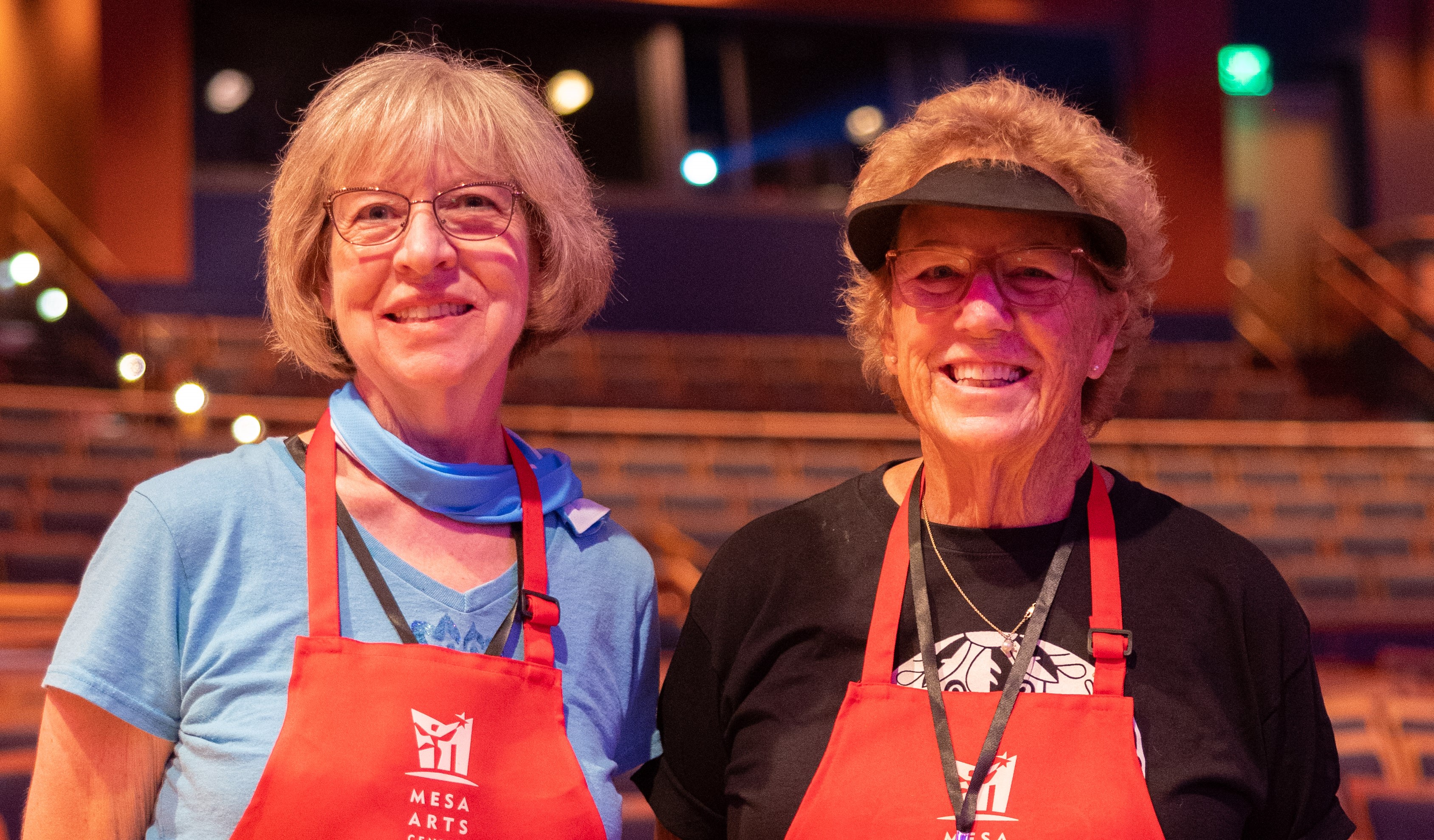
As National Volunteer Week unfolds, we're thrilled to honor Mesa Arts Center's remarkable volunteers. They are the heartbeat of
Read More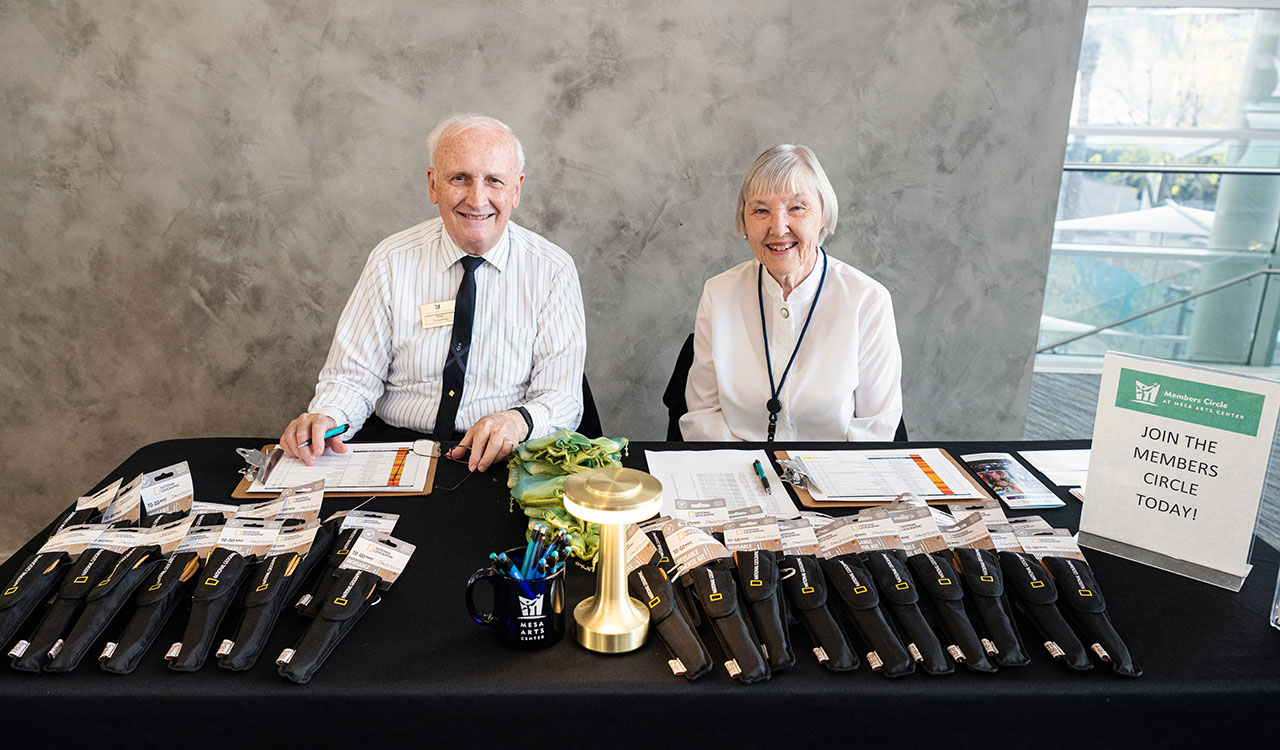
It's National Volunteer Week! In celebration, we want to recognize the incredible impact that our volunteers have on Mesa Arts
Read More
Prolific choreographer and dancer Martha Graham has said: Dance is the hidden language of the soul. There’s
Read More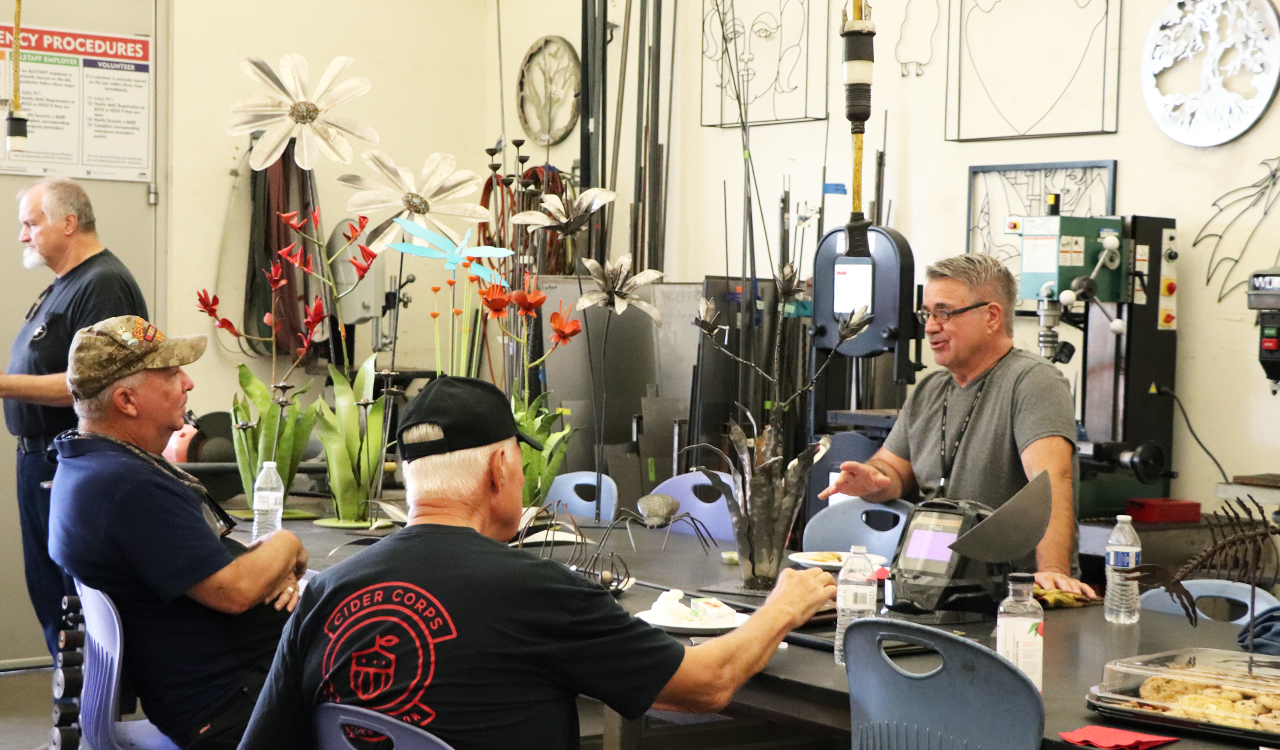
According to the Military Veteran Project and the VA, art has enormous value in creating connections, building self-esteem,
Read More